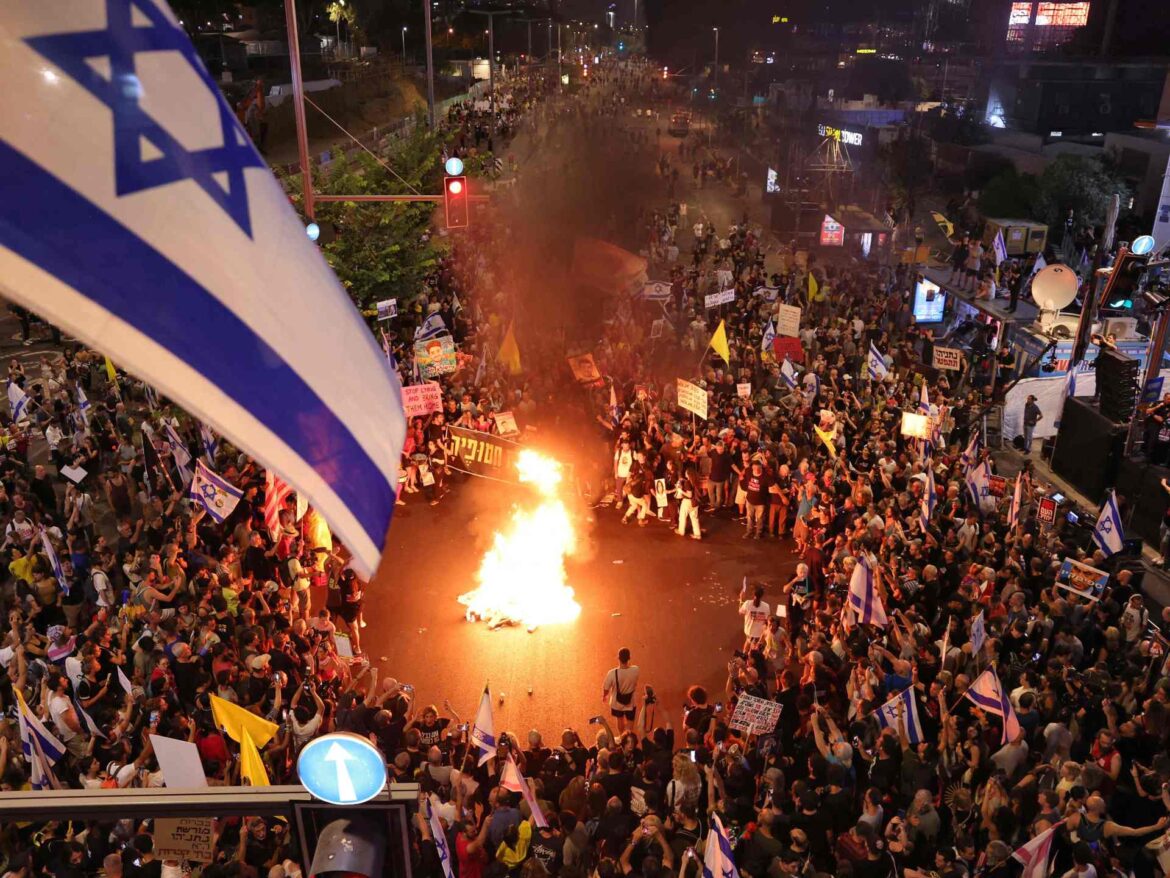Since Operation Al-Aqsa Flood on October 7, 2023, internal conflicts among Israelis have worsened significantly due to political and societal tensions that escalated with the development of military events, such as control of the judiciary and dealing with demonstrators opposed to government policies, and with the continuation of military confrontations and increasing tensions between Different factions in society, there are growing fears that these differences may develop into internal conflict, and perhaps even civil war, between Israelis themselves.
This can be summarized in an article published by Haaretz newspaper. Its writer, David Ohana, referred at the beginning to a poem by the Israeli poet Haim Guri entitled “I Am a Civil War,” in which the poet described the internal conflict that resembles civil wars.
The writer reported that the common Jewish identity among Israelis is exposed to major rifts in the period between the last Hebrew New Year and the current New Year.
He expressed the fear of many Israelis that protests against the government could eventually lead to civil rebellion and perhaps even civil war, noting that there are actually two groups of citizens standing on both sides of the conflict: a group that seeks to change the democratic system from its roots, and a group that opposes it.
The writer explained that this division within Israeli society may lead to a possible escalation towards civil war, especially if a certain group feels that the government is not dealing properly with the demonstrations.
Ohana stated that there are stages that precede civil war, such as civil disobedience, which is a type of peaceful protest within the boundaries of democracy, and civil rebellion, which may lead to the use of violence against the government. Some settlers use this type of rebellion in their call to destroy the Supreme Court.
The writer wondered whether the war in the north might lead to declaring a state of emergency and postponing the elections scheduled for 2026, and whether that would lead to violent protests, pointing out that civil wars are not only against the government, but between different parts of the people over power.
He cited civil wars from modern history, such as the American Civil War and the Spanish Civil War, and pointed out that fascism does not appear suddenly, but rather develops through stages, citing what is currently happening in Israel in terms of the politicization of the police and the formation of militias in the West Bank.
The writer highlighted the demonstrators’ infiltration of the Sde Timan military base, and touched on the propaganda he described as “Goebbelsian” by government supporters.
Ohana pointed to scenes similar to the fascist protests in Europe, which ended with the burning of immigrants’ homes, explaining that they also began to appear in Israel, where young settlers burned Arab homes, while the authorities did not take any actual steps to arrest those responsible for these crimes.
He expressed concern that the current regime might exploit these crises to impose emergency laws and postpone the next elections in 2026. He wondered whether these steps would lead to violent protests by the liberal camp; Some believe that Israel may repeat the mistakes of European fascism in the 1920s and 1930s.
Ohana concluded from the above that Israel faces serious challenges due to the ongoing war in Gaza, as signs of its transformation into a “barracks state” have begun to appear, meaning that its identity depends on militarization and wars.
The writer stated that the current Israeli government urges citizens to continue to sacrifice and strive to achieve “absolute victory” despite the heavy losses, indicating that this approach may lead to a repetition of what happened in Germany in 1933, where society turned into a “society of struggle,” and the result was Strengthening the Germans’ belief that they are achieving their goals through war and sacrifice, despite the approaching defeat.
Despite the clear danger of a civil war, according to Ohana, he mentioned that there is also a feeling of brotherhood among members of Israeli society that may prevent this conflict, as in the end everyone shares common ties related to history and values.
According to the writer, this is not just a formal discussion about the democratic or fascist regime, but rather a fundamental division that reflects an existential conflict between two contradictory visions of life and history.
Ohana concluded his article by saying that Haim Guri may have intended in his immortal lines, “There the righteous shoot other righteous,” to express this existential conflict between two contradictory and irreconcilable visions.



